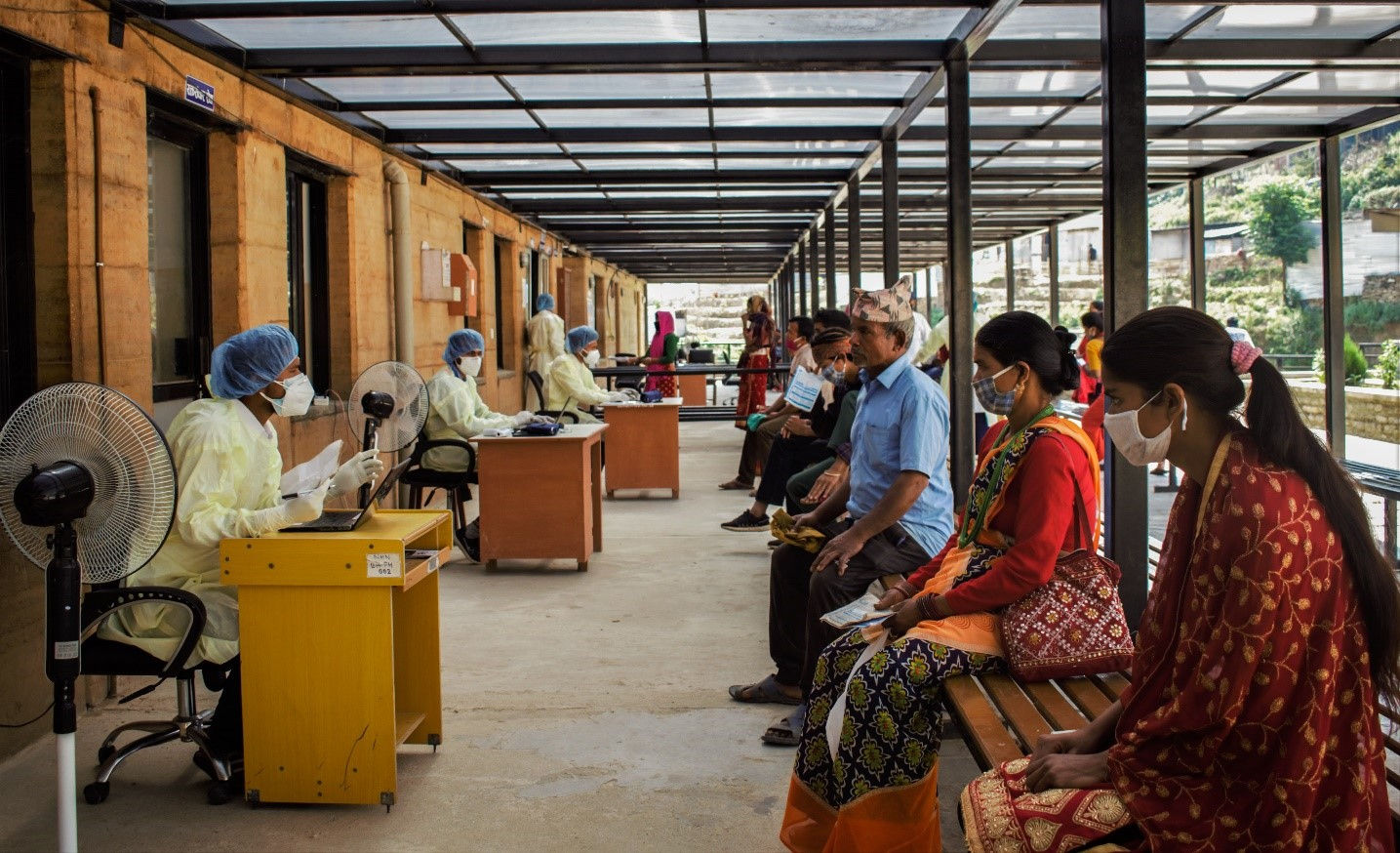
Our Model
Since 2008 NHN has been refining its model to develop a system that delivers on local health care needs while being financially viable such that it can be taken over by the government and replicated throughout the country.
In 2018 NHN adapted its strategy in line with the new federal and administrative system created by the new Constitution, focusing on achieving our mission to improve healthcare for underserved populations through the partnership with new newly created Municipalities, which are now in charge of healthcare delivery in the over 750 Municipalities throughout the country.
Our current strategy is significantly more cost-efficient and scalable, while it guarantees higher impact and more sustainability through government funding.
In the last 12 months we have strengthened our relationship with the Government of Nepal – our key partner – both at a Provincial level and, crucially, at Municipal level, while continuing to be a thought partner for the Ministry of Health at federal level.
Here's how it works:


Hospital-Based Healthcare
Intervention at the public hospital level to improve management and quality of care.

Community-Based Healthcare
Home-based care through a Community Health Worker (CHW) network to ensure timely case identification, appropriate treatment, counseling or referrals, and follow-up.

Digital Systems
An Electronic Health Record (EHR) that serves as the digital platform to integrate data and coordinate care between the hospital and the home.
.png)



Hospital-Based
Like most primary health care facilities, NHN supported hospitals provide all the necessary health services to meet the diverse needs of our communities. These services include:
-
Inpatient
-
Outpatient
-
Surgical & Emergency care
-
Lab services, including microbiology
-
X-Ray & ultrasound services
-
Government programs (HIV, TB, Safe Motherhood, etc)
-
C-Section, ultrasound, family planning methods, postpartum counseling
-
General surgery, orthopedic surgery & lab services focused on risk and complications assessment
-
Outpatient services for chronic diseases & outpatient mental health services
-
Lab investigations for chronic diseases
-
Pharmacy
Community-Based
Home-based care through a Community Health Worker (CHW) network to ensure timely case identification, appropriate treatment, counseling or referrals, and follow-up.
-
Home-based follow-up visits for adherence & counseling
-
Active monitoring & referrals for facilities-based care
-
Group antenatal and pediatric care
-
Active monitoring of pregnancy and early childhood illness
-
Support in receiving government Ante Natal Care reimbursements
-
Breastfeeding support
-
Counseling following birth in early infancy
-
Home visits for patients following surgery and for
mental health patients -
Passive monitoring of chronic diseases
Community Health Workers are an essential part of our model. Municipalities have now started implementing our program directly in their constituencies. NHN provides technical support and the Municipalities cover
the salaries of the Community Health Workers. We
believe this is the first step to our program being
scaled up on a national level.



Digital Systems

NHN use NepalEHR, an open source for Electronic Health Record (EHR) platform, to integrate data across points of care. The software is customized for health care systems in Nepal and designed for use in limited resource settings. NepalEHR integrates registration, clinical diagnosis, investigations, prescriptions, reporting, and stock management. It can be used for Health Management Information Systems Reporting (DHIS2) and for managing the National Health Insurance Scheme (IMIS). NHN has rolled out NepalEHR in Bayalpata Hospital and Chaurmandu PHC - Achham, Ampipal Hospital - Gorkha, Aambukhareni Hospital – Tanahun, Mahakali Province Hospital - Mahendranagar, Pasupati Chaulagain Memorial Hospital - Dolakha, Wangchhu Memorial Hospital – Solukhumbu and in district hospitals of Mehelkuna, Rukum, Dolpa, Mugu, Kalikot, Dailekh and Humla (Karnali Province).
